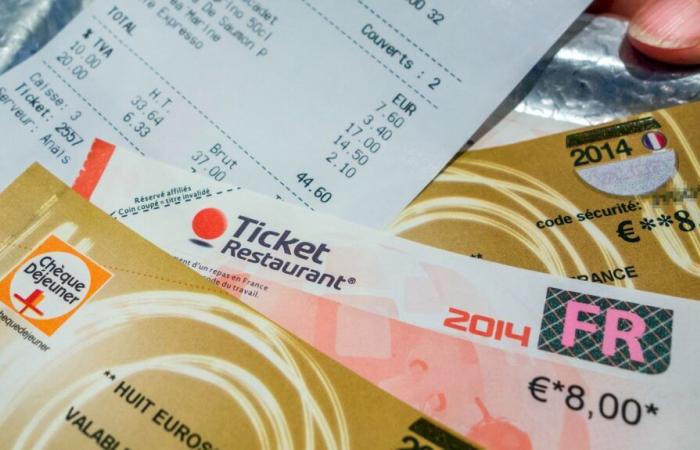According to the results of a study carried out by the National Commission for Meal Vouchers (CNTR) with C-Ways, and which Franceinfo revealed on Monday November 25, last year, 14 billion euros were spent. “directly benefited economic actors” thanks to this device. It is traditional or fast food which comes first, with 8.6 billion euros, the “main beneficiary”. Then come large and medium-sized stores with 2.9 billion euros, then local businesses such as bakers and caterers with 2.9 billion euros. “Each euro invested by employers in meal vouchers generates €2.70 injected into the local economy”.
These figures confirm “the economic, social and fiscal impacts of meal vouchers” et “their major role in supporting the catering of 5.4 million employees, the local economy and employment in more than 230,000 French businesses essential to the local economic fabric and the liveliness of city centers”indicate the authors of this study. The stakes are therefore high for restaurateurs who have expressed their opposition to the extension by the government at the end of 2023 of the use of restaurant vouchers for food shopping beyond January 1, 2024. They are once again demonstrating their opposition since the National Assembly adopted on Wednesday November 20 the extension until the end of 2026 of this exemption which allows restaurant vouchers to be used to purchase all food products. An adoption which must still be confirmed by the Senate.
Faced with this vote, the CNTR decides “against any perpetuation but agrees on the fact that a temporary extension of 6 months or a year would make it possible to carry out a more global reform of the system”we can read in this study. Furthermore, the national commission for meal vouchers calls for a “clear distinction between the employee's catering during his working day and the purchase of immediately consumable food preparations and the purchase of non-immediately consumable food products (pasta, rice, eggs, fresh meat and fish)”. This distinction “would be marked by two ceilings adapted to each context, while maintaining a maximum daily ceiling of €25 so as not to make the meal voucher a disguised salary”.
The CNTR says it is in favor of “gradual revaluation of the meal voucher amounts to better reflect the real cost of balanced meals, this is how we can better adapt it to inflation and the food purchasing power of employees”she analyzes. Thus, today the average value of a meal voucher is 8.75 euros, which is insufficient according to the study. The national commission for meal vouchers estimates “the real cost of a balanced meal between 12 and 19 euros depending on the region and the type of restaurant”. Therefore, a “gradual increase in face value is necessary to align with economic realities”. The CNTR is also in favor of thinking about “an increase in the employer share in co-financing beyond the current 60%”.
The meal voucher “is not only an advantage for employees, but a real engine for the local economy and local commerce”continues the CNTR. It's a “crucial support for employment”car in 2024, “nearly 100,000 direct jobs are supported by meal vouchers, including 76,000 in the catering sector and less than 7,500 in food distribution”according to this study. The CNTR warns the government against any reform that would threaten meal vouchers. “If the system is removed, the study estimates that 40,000 jobs could disappear, seriously affecting the catering sector, but also independent food businesses and their ecosystems”.
According to the CNTR, “the conversion into salary of the employer's share granted to co-financing the meal voucher” would bring down “funds injected into the economy going from 9.4 billion euros (currently via meal vouchers) to only 2.7 billion euros”.






